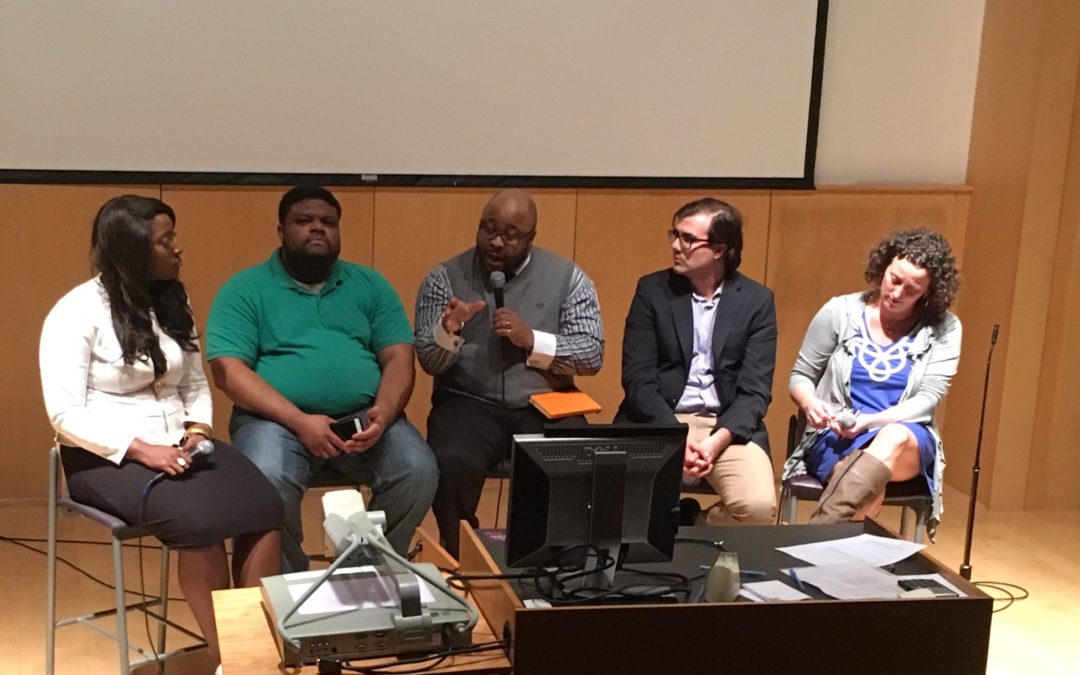Lipscomb’s College of Liberal Arts and Sciences held another HumanDocs event Wednesday night in Ward Hall, screening the documentary 13th: From Slave to Criminal with One Amendment.
Partnering with Lipscomb’s Office of Intercultural Development and the Nashville Film Festival, HumanDocs wanted to raise awareness of racial inequality in light of Black History Month.
The Netflix original documentary, directed by Ava DuVernay, focuses on mass incarceration in America and how it leans heavily toward African Americans. Though America only holds 5% of the world’s population, the land of the free also holds 25% of the world’s prison population.
This astounding rate started with the passing of the 13th Amendment after the Civil War. This amendment abolished slavery and involuntary servitude, with the loopwhole exception for criminal punishment.
13th brilliantly displays the adaptation of slavery from the 19th century definition to today’s lesser known, but equally brutal methods.
The film shows progression from slavery, to lynching, to segregation, to the political war on drugs (punished harsher in predominately African American communities), to cases of fear such as Trayvon Martin, and growing police brutality.
The movie’s ultimate and important message is that the prison industry is getting rich off of punishment, while African Americans are facing the modern phase of slavery, criminalization.
The event held a discussion panel after the film with several esteemed guests. Communication & Journalism faculty member, Aerial Ellis, moderated the discussion.
The panel included Robert A. Jackson Jr. (Lipscomb Student), Brandi Kellett (English and Modern Languages Department), Dr. J.B. Angus (Lipscomb Alumni), and Alexander Bissell (Nashville attorney for criminal and juvenile law), who all spoke on the documentary.
The idea of perception and judgment based on outward appearances feeds into the racial division that plagues this country.
“Perception over the years has been that we are angry, that we are unitelligent, brutal,” Jackson said. “Perception has gone so deep to the fact that I have actually had elderly, white women not get on the elevator with me because it was just me and her.”
The students not only saw factual accounts of racial injustice in the documentary, but also had the chance to hear personal experiences from panelists a part of the Lipscomb community.
“I used to want to be a police officer until I got arrested, and got treated badly because the police planted drugs on me,” Angus said. “The perception when they first saw me, back in 2000, was that I was a young, black man trying to find his way and I had recently dropped out of Tennessee State. This is before I came to Lipscomb, because Lipscomb saved my life.”
Angus was not only arrested for a crime he didn’t commit, but was taken to jail without being informed of why he was being arrested or where he was going.
Not uncommon to men in his situation, he was told to take a plea bargain, for a crime in which he was innocent, because the system assumed he could not afford to proceed with his legal right of trial.
Angus’ family quickly got involved and persisted until the case was dropped due to the inconsistency of police stories, while his remained the same.
He was able to escape the injustice, but many are not, and end up taking plea bargains and serving time for petty crimes, or no crimes at all, out of fear of a longer punishment.
“I’ve been to a lot of different jails in the state of Tennessee now and handled a lot of cases and just about every time I find that the person I meet, whose wearing orange, is a regular person like you or I,” Bissell said. “I hope we move to some kind of system where these drug problem crimes are punished with rehabilitation rather than prison.”
According to Angus, because our justice system continually fails to rehabilitate these men and women, our churches should be actively pursuing ways to help and protect these teens.
“In this day in time, people who have issues with alcohol addiction and drug addiction, they are shunned from the church,” he said. “We’ve got kids dying in the streets, our young men who are in our churches getting expelled and the preachers aren’t talking about that. We are falling behind. There is a sense of urgency. Our kids are dying.”
Lipscomb is not an exception to this problem, as panelist Jackson pointed out. African American men are not represented equally in schools affiliated with the church, as students or professors.
“In America the racial issue is not comfortable,” Angus said. “No matter how much I do, no matter how good at it I am, I know that I have to do quadruply better than the worst white person to get somewhere.”
According to Kellet, though racial issues have only grown over the course of history, the Lipscomb community, constantly professing the faith of Christ, needs to take action in mending these divisions on and off campus.
“If you’re a follower of Christ, and you are not committed to pursuing justice then you are not following Him,” Kellet said. “If you’re not about justice then you’re not about God.”

